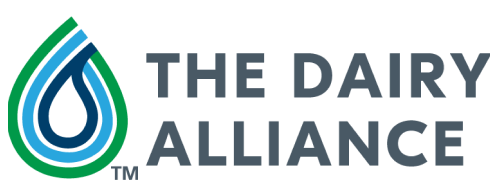See a Registered Dietitian Nutritionist (RDN) Day
Anyone can be a nutritionist, but dietitians go through years of training to become the leading nutrition professional!
What is See a Registered Dietitian Nutritionist (RDN) Day?
See a Registered Dietitian Nutritionist Day commemorates the pivotal role of dietitians in fostering healthy lifestyles and creating awareness for what a dietitian can do. Established to recognize their expertise and contributions, this day underscores the significance of seeking professional guidance in nutrition and dietetics. RDNs play a vital role in promoting health and wellness by providing evidence-based dietary advice, personalized nutrition recommendations, and strategies for disease prevention and management. Their comprehensive understanding of nutrition science equips them to address diverse health concerns and dietary needs, making them invaluable resources on healthcare teams and in your community.
How to Celebrate See a Registered Dietitian Nutritionist (RDN) Day
Consider hosting an event to recognize registered dietitians and highlight success stories of patients who worked with RDNs and had positive health outcomes as a result. These case studies underscore how transformative it can be to work with dietitians. Share some key roles and responsibilities of a dietitian:
Nutrition Counseling and Behavior Coaching: They offer one-on-one or group counseling sessions to educate clients about healthy eating habits, portion control, meal planning, and dietary modifications to address specific health concerns or conditions.
Disease Management: Dietitians play a crucial role in managing and preventing chronic diseases such as diabetes, heart disease, obesity, and gastrointestinal disorders through tailored nutrition interventions and lifestyle modifications.
Specialized Diets: They provide guidance on specialized diets such as vegetarianism, veganism, gluten-free diets, and diets for athletes, individuals with food allergies or intolerances, and those with eating disorders.
Group Education: Dietitians develop and deliver educational programs, workshops, and presentations on nutrition-related topics to diverse audiences, including schools, workplaces, community centers, and healthcare facilities. RDNs, like those working for The Dairy Alliance, can also help consumers learn more about where their food comes from by facilitating farm tours and agricultural educational opportunities.
Menu Planning: They collaborate with food service establishments, hospitals, schools, and long-term care facilities to create balanced and nutritious menus that meet the dietary needs and preferences of their clients or patients.
Media Relations: Dietitians share evidence-based nutrition recommendations in the media such as in magazines, TV, broadcast, and on the Internet.
Research and Policy Development: Some dietitians are involved in nutrition research, policy development, and advocacy efforts aimed at promoting public health initiatives, influencing food policy, and addressing nutritional disparities within communities.
Continuing Education: Dietitians stay abreast of the latest research, trends, and advancements in the field of nutrition and dietetics through ongoing professional development and continuing education programs.
Why Choose a Registered Dietitian Nutritionist (RDN)?
Working with a Registered Dietitian Nutritionist offers numerous benefits, including tailored nutritional guidance, support for achieving dietary goals, and empowering individuals to make informed choices for their long-term health. RDNs are highly qualified healthcare professionals with extensive training and expertise in the field of nutrition and dietetics. Dietitians are the leading nutrition experts and the only nutrition degree that is regulated and nationally recognized. To become a dietitian in 2024, one must complete a master’s degree along with a supervised internship program and then pass a national examination. Dietitians often pursue advanced degrees and certifications to specialize in specific areas of nutrition, such as sports nutrition, pediatric nutrition, or clinical nutrition.
With their comprehensive knowledge and skill set, RDNs are adept at creating personalized nutrition plans and dietary recommendations tailored to meet the unique needs and goals of their clients or patients. By staying abreast of emerging trends and developments in the field of nutrition, dietitians ensure that their recommendations are grounded in solid evidence and aligned with current best practices in nutrition science.
Hug a dietitian if you know one for RDN Day!
Caroline Thomason is a dietitian, diabetes educator, and writer based in Washington, DC. She runs a private practice for women who want to stop dieting and find confidence with food. As a media dietitian, she is the best at breaking down complex science into easy-to-digest language. Her work has been featured in Forbes, Health, SHAPE, EatingWell, and more.





